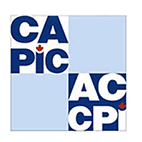“Should I apply again after my Canada Study permit refusal?”
Yes, you can reapply and there’s a good chance you’ll be successful the second time around. But before that make sure you are aware of the Canada study permit refusal reasons.
Many of these study permit rejections are due to incomplete applications. However, IRCC may also reject complete applications for numerous other reasons.
We have compiled some of the leading Canadian student visa rejection reasons along with possible workarounds and solutions for them.
GCMS Notes to Know Refusal Reasons
You can learn the various reasons for the Canada study permit refusal by ordering GCMS notes. It’s a great way to figure out what you need to do to improve your chances of getting approved next time.
What is GCMS?
The Global Case Management System (GCMS) is IRCC’s primary system for processing applications for citizenship and immigration.
GCMS (formerly Computer Assisted Immigration Processing System – CAIPS) stores personal information related to citizenship and immigration applicants.
How to Get GCMS Notes?
GCMS notes are typically only available to Canadian permanent residents and citizens. Alternatively, a Canadian permanent resident or citizen can apply for these notes on your behalf.
After finding a suitable representative, you must retrieve your application number or Unique Client Identifier (UCI).
You can then request these notes from IRCC on your behalf through the representative.
Beat the Study Permit Refusals
What Does a Visa Officer Look for in a Study Permit Application?
The study permit application contains many personal details such as your background, education history, employment history, travel history, and finances. Canadian visa officers study each of these areas when assessing whether to approve or reject a study permit application.
7 key things a Visa Officer looks for in a Canada study permit application are:
Country of residence (Political Stability)
The visa officer checks which country the applicant is residing in and checks whether it is considered politically stable. They give preference to applications from individuals who live in politically stable countries.
Stable Employment History
The visa officer will browse your employment history and look for any red flags. They prefer applicants with stable work histories. This includes people who have been with the same employer for long periods and were paid well.
If your Spouse and/or Children accompany you
The officer will also look at your marital status and whether you have any children. Some international students may attempt to bring their spouses and children with them to Canada for the duration of their studies.
Such applicants increase their chance of being rejected, as IRCC aims to limit the number of foreign nationals they allow into Canada.
No More Study Permit Rejections
Good Financial Situation
Visa officers typically check the applicant’s financial situation to ensure they can pay for education and other expenses in Canada. Applicants with limited funds or a poor financial history are likely to be rejected.
Learn more: GIC Rejection Reasons
Previous Trips to Canada
The visa officer will also check to see if you have visited Canada in the past. Previous trips to Canada reflect well on your applications because they inform the officer you were considered suitable for entry into Canada in the past.
Owning Property in Your Country of Residence
Your visa officer may also check whether you own any property in your country of usual residence. There are several reasons why owning property is considered a good sign. You can obtain additional funds by selling off the property in an emergency. Additionally, it shows that you have a reason to return home.
Related Topic: 6 Tips to Avoid Canada Study Visa Refusal
Previous Visitor Visa or Study Permit Applications
The officer will verify whether you have applied for a visitor visa or study permit applications in the past. If you had applied for either of these before and were rejected, the officer may choose to reject your application.
This is because past rejections may indicate you filled out your earlier application poorly or that you weren’t considered suitable for entry into Canada.
Did you know: According to Citizenship and Immigration Canada (CIC), around 30% of all student visa applications for Canada are refused each year.
Canadian Study Permit Refusal Reasons and Possible Solutions
The main reasons for study permit refusal typically fall into one of the following three categories:
The purpose of Coming to Canada is not Study
Failing to convince the immigration officer that you intend to come to Canada primarily to study. This is considered a failure to demonstrate your “purpose of the study”.
No intention to leave Canada
Failing to convince the immigration officer that you intend to leave Canada after completing your study program.
Insufficient funds
Offering insufficient proof that you can financially support yourself and any family members coming to Canada with you.
The three most common reasons for Canada’s study permit rejection are mentioned above. Now we will discuss the detailed reasons that you find in the Canada study permit refusal letter. These reasons are:
#1 The Purpose of Your Visit is not Study
IRCC maintains strict requirements for international student applicants to reduce the likelihood that they will use their study permit to enter Canada and stay there permanently. If a student fails to demonstrate that their primary reason for entering Canada is to study, they will be rejected.
The official reason for this rejection will resemble the following statement:
“I am not satisfied that you will leave Canada at the end of your stay, as stipulated in subsection 216(1) of the IRPR, based on the purpose of your visit.”
You can make a more convincing case by attaching your College or University acceptance letter with your application.
This shows that you have admission into a Canadian educational institution and that you could pursue an educational program in the country. However, this is already a requirement for study permit applicants.
Solution:
A better solution is to include a study plan in the cover letter you intend to submit with your application.
In this study plan, you should mention your passion for studying the subject you will be taking courses in once you reach Canada.
You can also mention that you will obtain a degree, diploma, or certificate after completing this program and that it will help you in your future career.
#2 Limited Employment Prospects in the Home Country
” I am not satisfied that you will leave Canada at the end of your stay, as stipulated in subsection 216(1) of the IRPR, based on the limited employment prospects in your country of residence.”
IRCC aims to attract the best and brightest minds to pursue higher education in Canada. These individuals must demonstrate that they already have great employment opportunities in their current country of residence.
They can then present a convincing case that they intend to expand their knowledge and skills by studying in Canada before returning to their home country.
Following this, they can use their newfound knowledge and skills to further their career. This is a common strategy for international students. However, the key point of this is to demonstrate that they intend to return home.
Applicants with limited employment prospects in their home country may use their study permit to enter Canada and stay on and work illegally after their student status expires.
IRCC attempts to discourage this practice by rejecting applicants with limited employment prospects in their home country.
Solution:
You can demonstrate that you have good employment prospects in your home country by including a career progression in your cover letter.
This career progression should include information about past jobs you have held in your current country and how obtaining a degree, diploma, or certificate in Canada will enable you to obtain higher-skilled jobs in your chosen field.
#3 Unstable Current Employment Situation
“I am not satisfied that you will leave Canada at the end of your stay, as stipulated in subsection 216(1) of the IRPR, based on your current employment situation.”
IRCC may also reject people with an unstable employment situation in their home country. This refusal reason is similar to the one listed above. However, it applies to people who already have jobs in their home country.
If the visa officer has reason to believe the company you are currently working for is going to shut down, lay off its employees, or fire you, they will reject your study permit application.
Solution:
You can work around this issue by providing information on your company in the cover letter, especially with regard to how it is a successful business. You can also include a letter of recommendation from your employer to prove that you are a good employee who would otherwise have stayed with the company.
If your current employment situation is unstable, you may be able to point out that pursuing higher education in Canada would enhance your current position in the cover letter.
#4 Insufficient Personal Assets and Financial Status
“I am not satisfied that you will leave Canada at the end of your stay, as stipulated in subsection 216(1) of the IRPR, based on your personal assets and financial status.”
As mentioned earlier, one of the most common Canada student visa refusal reasons is failing to demonstrate that you have enough funds to pay for your education and other expenses in Canada.
This also includes expenses for any family members accompanying you to Canada. In some cases, the visa officer may reject someone with sufficient funds if the source of their funds appears suspect.
For example, they might believe the funds you have shown in your bank account were temporarily borrowed from a friend or relative and that you will return the funds to them before leaving for Canada.
Solution:
You can work around this issue by explaining the source of the funds in the cover letter you provide.
#5 Lack of Strong Family Ties
“I am not satisfied that you will leave Canada at the end of your stay, as stipulated in subsection 216(1) of the IRPR, based on your family ties in Canada and in your country of residence.”
A Canadian visa officer may reject your application for your lack of strong family ties in your home country. This is because someone without strong family lies will have fewer reasons to return to their home country after finishing their studies in Canada.
Solution:
You can convince IRCC that you intend to return by pointing out that you have many close family members such as parents or siblings living in your home country in your cover letter.
#6 Immigration Status
“I am not satisfied that you will leave Canada at the end of your stay, as stipulated in subsection 216(1) of the IRPR, based on your immigration status.”
Your present immigration status in your current country of residence may also influence your chances of being rejected. For example, if you are residing in a country on a temporary visitor visa, IRCC may believe you are coming to Canada to avoid going back to your country of nationality.
Solution:
There isn’t a simple solution to this problem. However, you can mention your reasons for your current immigration status.
For example, if you are originally from India and are currently working in Germany under a German work visa, you can point out your work history in Germany to show that you have a legitimate reason to be in the country.
You can then talk about how pursuing higher education in Canada enables you to expand your knowledge and skill set and further your career.
#7 Not Enough Travel History
“I am not satisfied that you will leave Canada at the end of your stay, as stipulated in subsection 216(1) of the IRPR, based on your travel history”
IRCC can be picky about letting people with little to no travel history into Canada. They believe such people may seek to leave their home country and settle in Canada illegally by obtaining a study permit.
Solution:
It generally won’t be feasible or even possible for you to gather a rich travel history in the weeks leading up to your study permit application. Therefore you should focus on demonstrating that you intend to return to your home country in your cover letter. This includes mentioning your family ties, properties, and employment prospects in the country.
#8 Lack of Educational Documents
A visa officer may reject your study permit application due to a lack of educational documents. They may state:
“Your proposed studies are not reasonable in light of one or more of your qualifications, previous studies, academic record, future prospects.”
Solution:
If you are at risk of being rejected for having a poor academic record many years ago, you can specify how your academic performance has improved in more recent years. Alternatively, you can discuss your current job and the various duties you are required to keep up with. This may help demonstrate your current competency and ability to maintain responsibility.
#9 Not Enough Funds for Studies
One of the most common Canada study permit refusal reasons is failing to demonstrate you have enough funds for your studies. You should typically show that you have a minimum of $25,000 CAD in your bank account when you apply for your study permit. This amount should be sufficient to cover your tuition and living expenses for one year.
A summary of the funds you will need for yourself and any family accompanying your are shown in the following table:
| Individual Coming to Canada | Amount Needed for each Twelve Month Period in Canada |
| Student | Tuition Cost + $10,000 for living expenses |
| Spouse or Common-Law Partner coming to Canada | $4,000 for living expenses |
| Each Dependent coming to Canada | $3,000 for living expenses |
#10 You Have Shown Dual Intent
IRCC may also reject you if you have shown dual intent in your application. This can occur if you have mentioned that you intend to settle in Canada after completing your studies.
You should remember to avoid showing dual intent because the IRCC issues study permits for people who intend to leave Canada after finishing their studies.
Stating you plan to work and settle in the country afterward offers the impression you are using the study permit as a way to get into Canada and avoid returning to your home country.
You can avoid giving Canadian visa officers this impression by stating that you intend to go back to your family and work in your home country as soon as you are done with your studies.
You should state this even if you believe you will be eligible for a Post-Graduation Work Permit after completing your program in Canada.
#11 Poorly Structured Cover Letter
Your cover letter plays a vital role in explaining your reasons for coming to Canada and demonstrating that you intend to return to your home country once your studies are done. You should strive to include relevant information in this letter. However, you should also remember to present this information with the right structure.
Sending in a messy cover letter might get your application rejected. Therefore, it is best to construct a cover letter with a properly formatted structure, as we described in our guide.
Can You Appeal a Study Permit Refusal?
There is no format method for appealing a study permit refusal. If your study permit application is rejected, your best course of action is to apply again and describe how your circumstances have improved in the cover letter.
Need help?
We have helped a number of international students with study visa refusals. You can contact our experts here. Our team is led by Keshav Sharma, a licensed and regulated Canadian Immigration Consultant with many years of experience. We will help you with your study permit, work permit, and permanent residence process. It is never too late. Good Luck!










